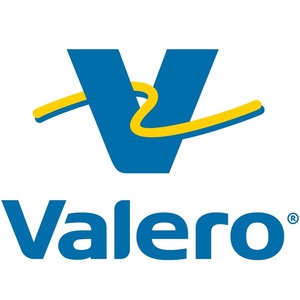Valero reports strong Q3 for biofuels

November 28, 2023
BY Erin Krueger
Valero Energy Corp. released third quarter financial results on Oct. 26, reporting significantly higher earnings and production volumes for its ethanol segment. Renewable diesel sales volumes were also up and the company’s sustainable aviation fuel (SAF) project remains on schedule.
Valero’s renewable diesel segment, which consists of its Diamond Green Diesel joint venture with Darling Ingredients, reported $123 million of operating income for the third quarter, down from $212 million during the same period of 2022. Valero primarily attributed the decline in operating income to lower renewable diesel margins.
Advertisement
Renewable diesel sales volumes averaged 3 million gallons per day during the three-month period, up 761,000 gallons per day when compared to the same period of last year. Valero attributed the higher sales volumes due to the impact of additional volumes from the DGG Port Arthur plant, which began operations in the fourth quarter of last year. During a third quarter earnings call, Homer Bhullar, vice president of investor relations at Valero, said the company currently expects renewable diesel sales volumes for the full year to reach approximately 1.2 billion gallons.
Valero’s ethanol segment reported $197 million in operating income for the third quarter, up from $1 million during the same period of last year. Ethanol production volumes averaged 4.3 million gallons per day, up 831,000 gallons per day when compared to the third quarter of 2022. The company attributed the increased operating income to higher production volumes and lower corn prices. Moving into the fourth quarter, the ethanol segment is expected to produce 4.4 million gallons per day, according to Bhullar.
Advertisement
Lane Riggs, president and CEO of Valero, discussed the company’s plans to produce SAF. The SAF project at DGD’s Port Arthur facility in Texas is expected to provide the facility with optionality to upgrade 50 percent of its current 470 MMgy production capacity to SAF. Riggs said the project remains on schedule is and currently expected to be complete in 2025.
Also during the call, Bhullar addressed Navigator CO2 Venture LLC’s Oct. 20 announcement that it has cancelled plans for its proposed Heartland Greenway CO2 pipeline project. Valero was expected to be an anchor shipper of CO2 on the pipeline. “We still see carbon capture and storage as a strategic opportunity to reduce the carbon intensity of conventional ethanol,” Bhullar said, noting that CCS is needed to provide ethanol with a pathway to SAF under current policies. “We continue to evaluate other projects to sequester CO2,” he added.
Overall, Valero reported net income attributable to Valero stockholders of $2.6 billion, or $7.29 per share, for the third quarter, compared to $2.8 billion, or $7.19 per share, for the same period of last year.
Related Stories
The U.S. Energy Information Administration maintained its forecast for 2025 and 2026 biodiesel, renewable diesel and sustainable aviation fuel (SAF) production in its latest Short-Term Energy Outlook, released July 8.
XCF Global Inc. on July 10 shared its strategic plan to invest close to $1 billion in developing a network of SAF production facilities, expanding its U.S. footprint, and advancing its international growth strategy.
U.S. fuel ethanol capacity fell slightly in April, while biodiesel and renewable diesel capacity held steady, according to data released by the U.S. EIA on June 30. Feedstock consumption was down when compared to the previous month.
XCF Global Inc. on July 8 provided a production update on its flagship New Rise Reno facility, underscoring that the plant has successfully produced SAF, renewable diesel, and renewable naphtha during its initial ramp-up.
The U.S. exported 31,160.5 metric tons of biodiesel and biodiesel blends of B30 and greater in May, according to data released by the USDA Foreign Agricultural Service on July 3. Biodiesel imports were 2,226.2 metric tons for the month.
Upcoming Events










